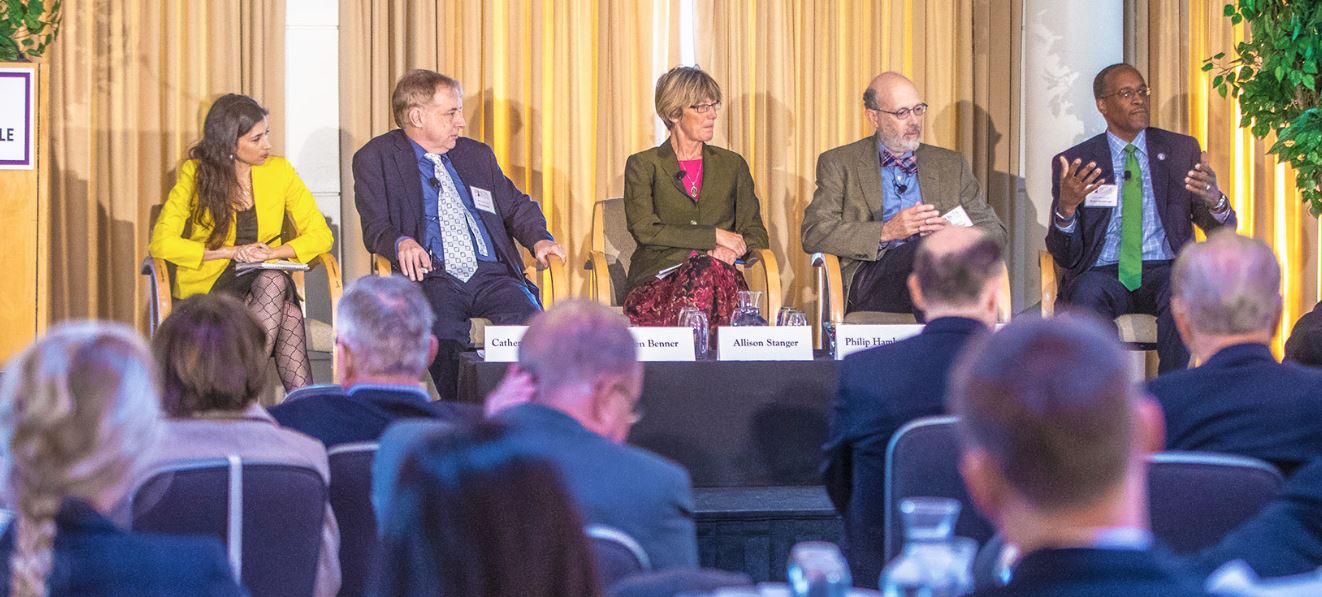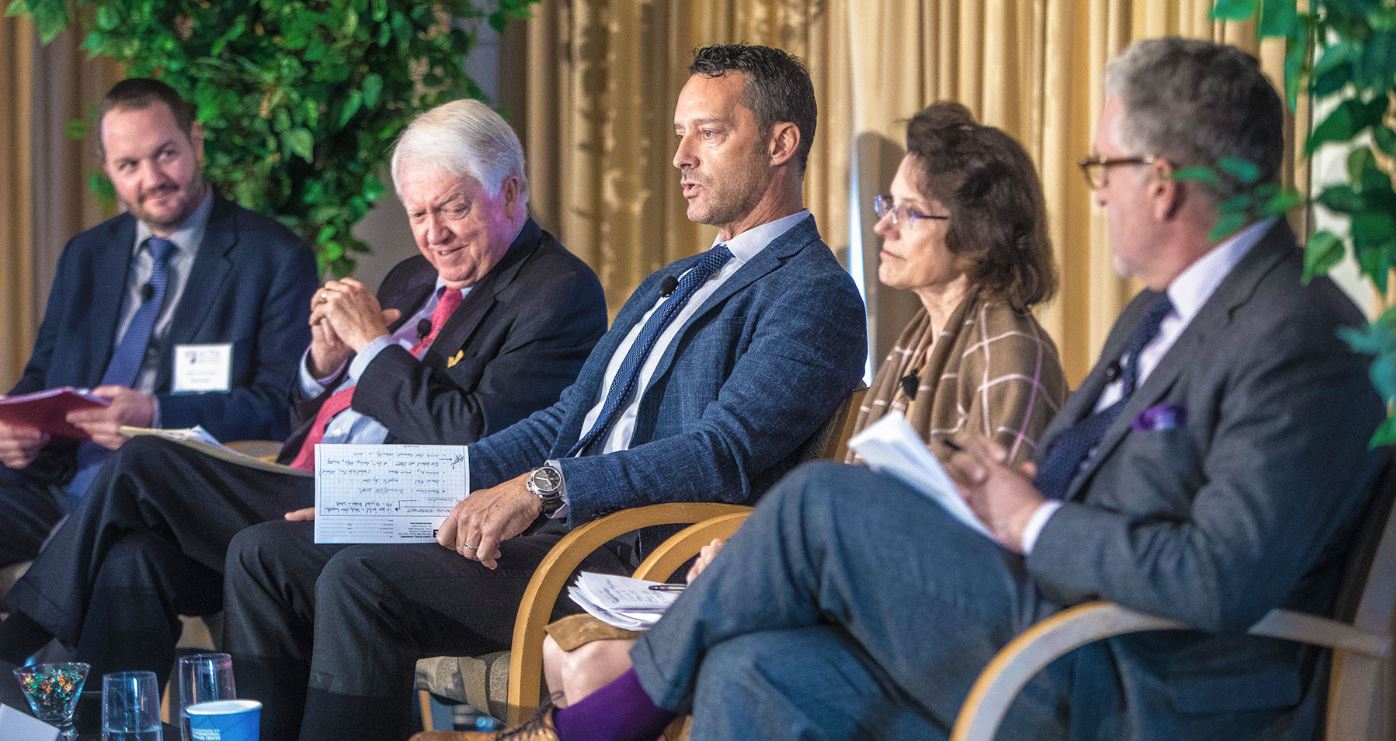The national conversation concerning the state of free expression on college campuses, the health of America’s institutions of higher education, and the role of trustees and policymakers in charting the future of the academy has never been more urgent. The liberal arts find themselves on the defensive as more people question the value proposition of a liberal arts degree. Higher education is more than ever at the forefront of social, economic, and political debates—an intriguing backdrop for the 2017 ATHENA Roundtable Conference.
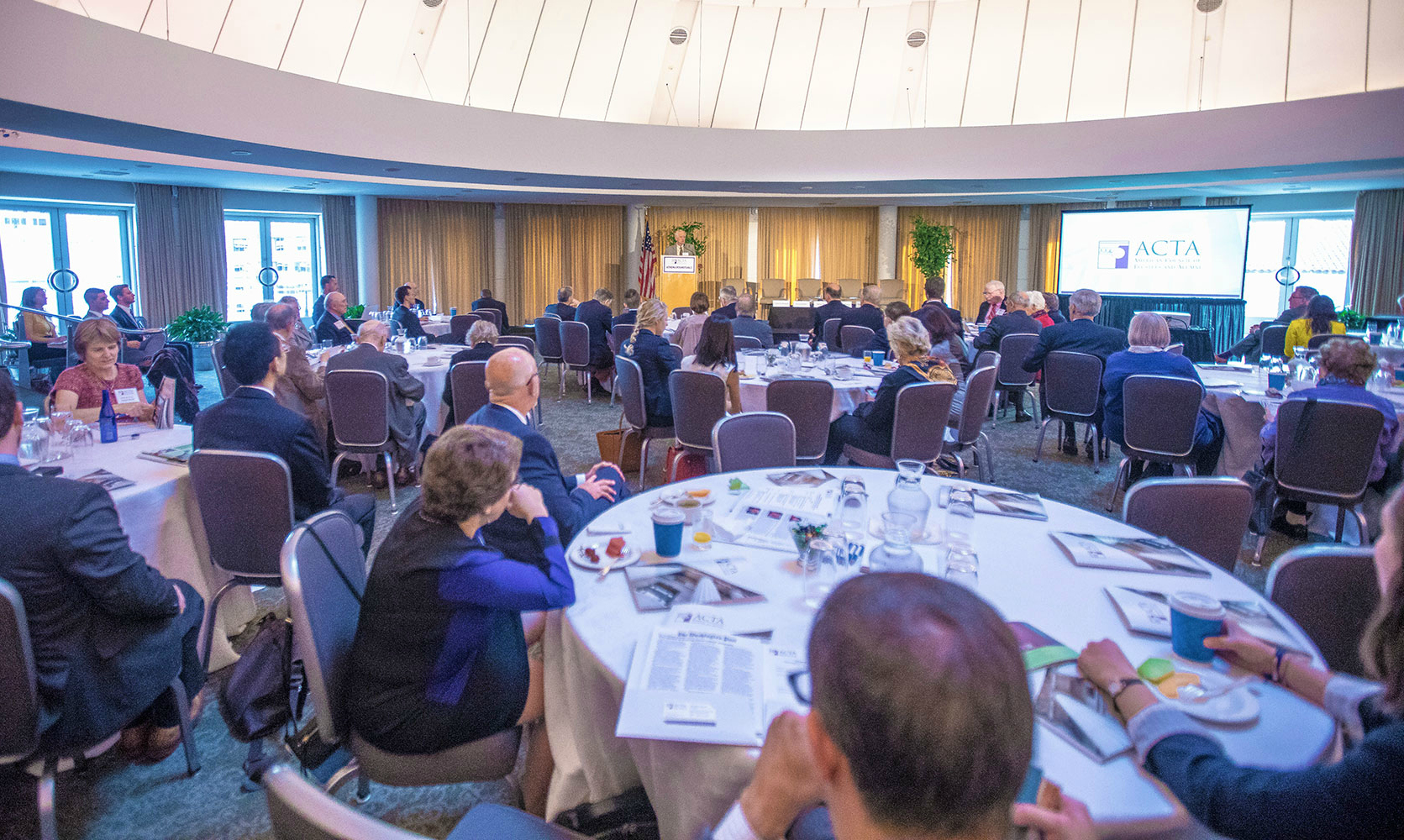 This year’s theme, Restoring Excellence: Ideas that Work for 21st Century College Leadership, brought together trustees, alumni, faculty, and a record number of student attendees for a vigorous discussion of the best way to ensure higher education quality.
This year’s theme, Restoring Excellence: Ideas that Work for 21st Century College Leadership, brought together trustees, alumni, faculty, and a record number of student attendees for a vigorous discussion of the best way to ensure higher education quality.
A Common Agenda for Academic Freedom
The morning panels on free speech and college accountability sparked high engagement and lively discussion with our audience. The first, moderated by Washington Post columnist Catherine Rampell, featured panelists with a broad range of ideas—all of whom brought a wealth of knowledge and experiences to this exciting conversation.
Steven Benner, now a distinguished biochemist and once a student member of the 1974 Committee on Freedom of Expression at Yale, brought an empirical approach from the hard sciences to campus discourse. Allison Stanger analyzed her own face to face encounter with campus violence as a professor at Middlebury College; and Dillard University President Walter Kimbrough described how he navigated the volatile situation when the controversial white supremacist David Duke was slated to appear in an on-campus debate.
Despite their different vantage points on the debate, all agreed that protecting speech on college campuses is foundational for a free society. Some proposed solutions included Professor Stanger’s “Departmental Treaty of Westphalia” to prevent faculty from censoring each other’s programs and speeches. President Kimbrough emphasized the importance of having the board of trustees’ strong support on speech issues. Columbia Law School Professor Philip Hamburger considered incentivizing and penalizing universities financially for failing to uphold academic freedom.
From left to right: Catherine Rampell, Steven Benner, Allison Stanger, Phillip Hamburger, and Walter Kimbrough.
The Changing Model of Higher Ed
The business practices of colleges and universities are now front and center; the spiraling costs of higher education are of paramount concern. Our panel session on this theme was deeply provocative and insightful. Paul Fain, news editor at Inside Higher Ed, moderated the second discussion regarding the complex issues of college finance.
Michael Berghoff, chairman of the Purdue University Board of Trustees, explored the thought process that led Purdue University to its acquisition of the online institution, Kaplan University, and the unique challenges that face online education today. University of Colorado Regent Stephen Ludwig emphasized that universities must have more than reputation behind them, as many of these institutions often do not support their reputation with sound educational practices. He also discussed alternative paths, including a community college beginning, and emphasized that each individual can find an appropriate route to gaining a four-year degree. Pepperdine University Chancellor Michael Adams raised the issue of providing academic rigor while keeping costs manageable. Anne Neal, ACTA senior fellow, highlighted the difficulty of reforming schools while the current faulty accreditation system remains in place.
From left to right: Paul Fain, Michael Adams, Michael Berghoff, Anne Neal, and Stephen Ludwig.
Keynote: Success, Significance, and the Liberal Learning Core
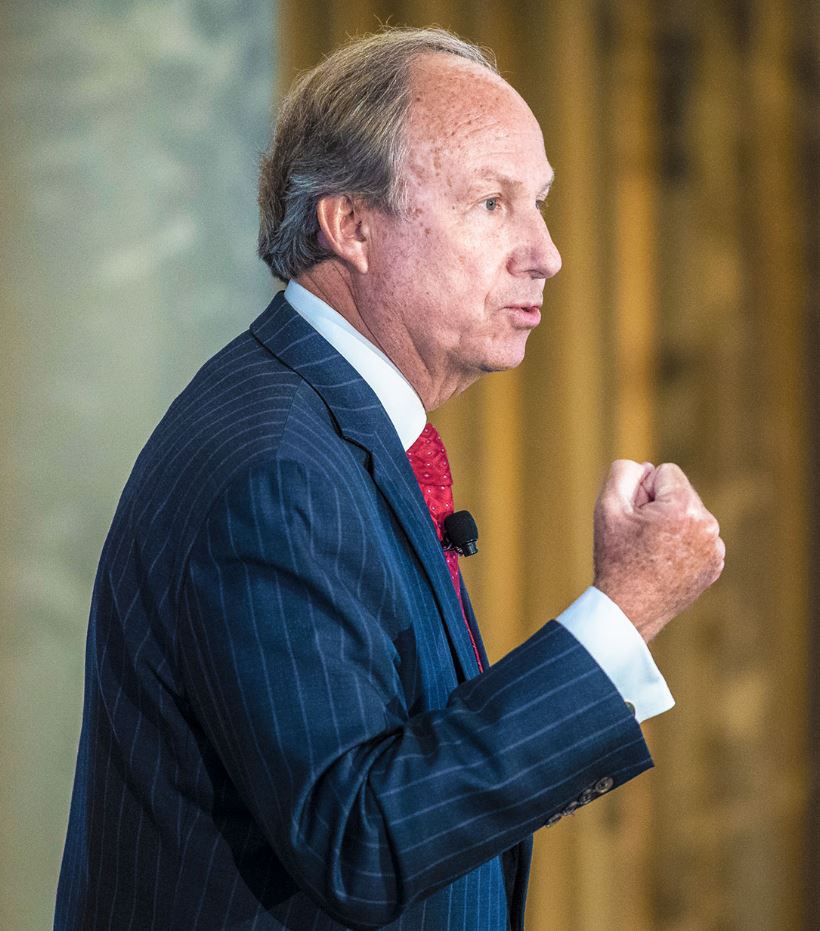
Celebrating a Liberal Arts Leader
To be presented with the Philip Merrill Award for Outstanding Contributions to Liberal Arts Education is to join an elite club of higher education reformers. Catherine Merrill Williams eloquently introduced the award named after her father.
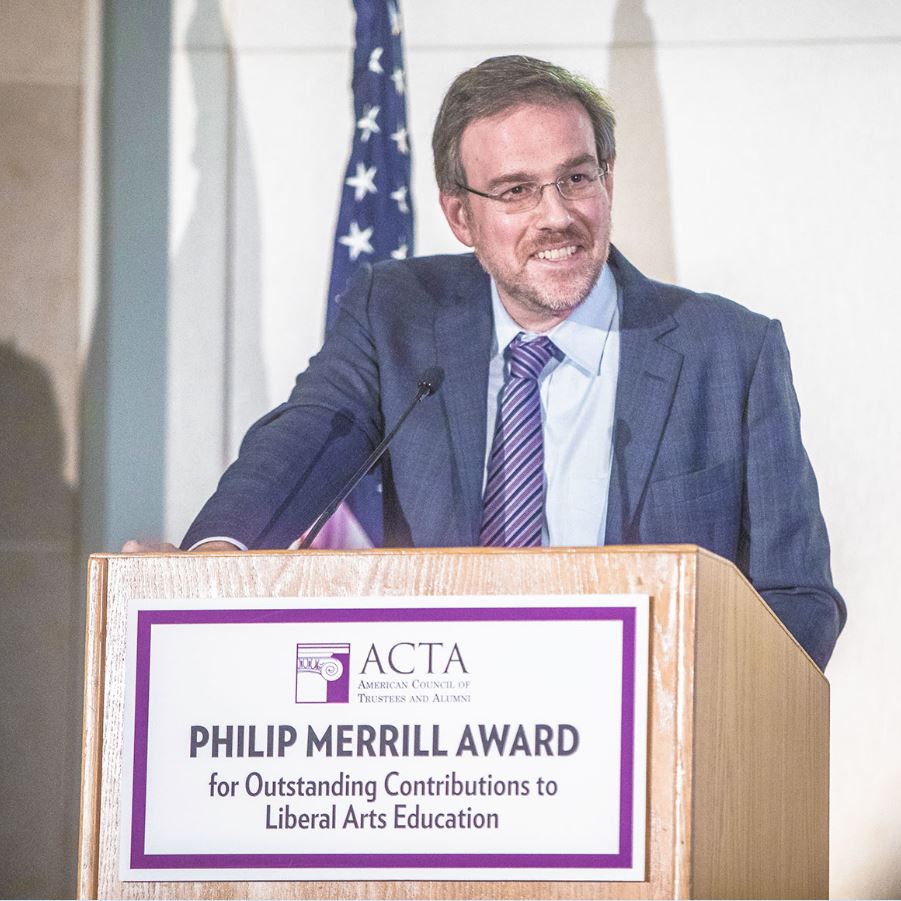
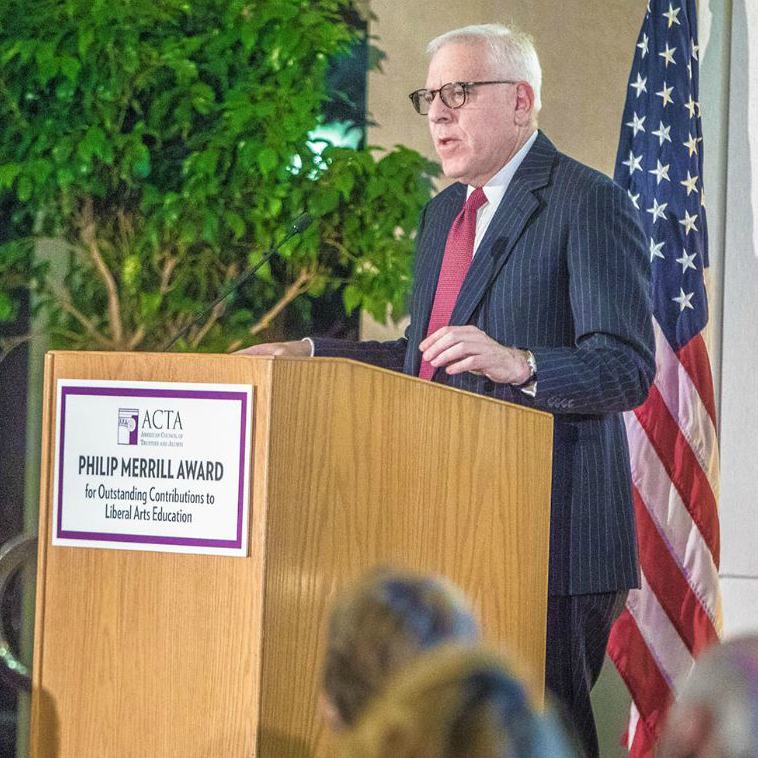
Jonathan Cole emphasized the core values that create a model of great higher education and Robert Zimmer’s role in protecting academic freedom at America’s universities. The distinguished philanthropist and business leader David Rubenstein (pictured right) added personal warmth and wry humor to the celebration by sharing an imaginary posthumous letter from John D. Rockefeller, the founder of the University of Chicago, who would be proud of his investment and the progress President Zimmer has made in elevating the university.
In his acceptance speech, President Zimmer observed that “ACTA is exceedingly important. The attention it gives to fundamental problems in higher education today is greatly needed.” He stressed the crucial role of a liberal arts education in enabling students to identify and challenge commonly held views, and its ability to expose others to different ways of thinking – in his own words, “liberating skills.” These skills are not only essential for personal development, but also for many careers, especially in leadership roles, where new challenges will arise and require innovative ways of thinking to solve them. 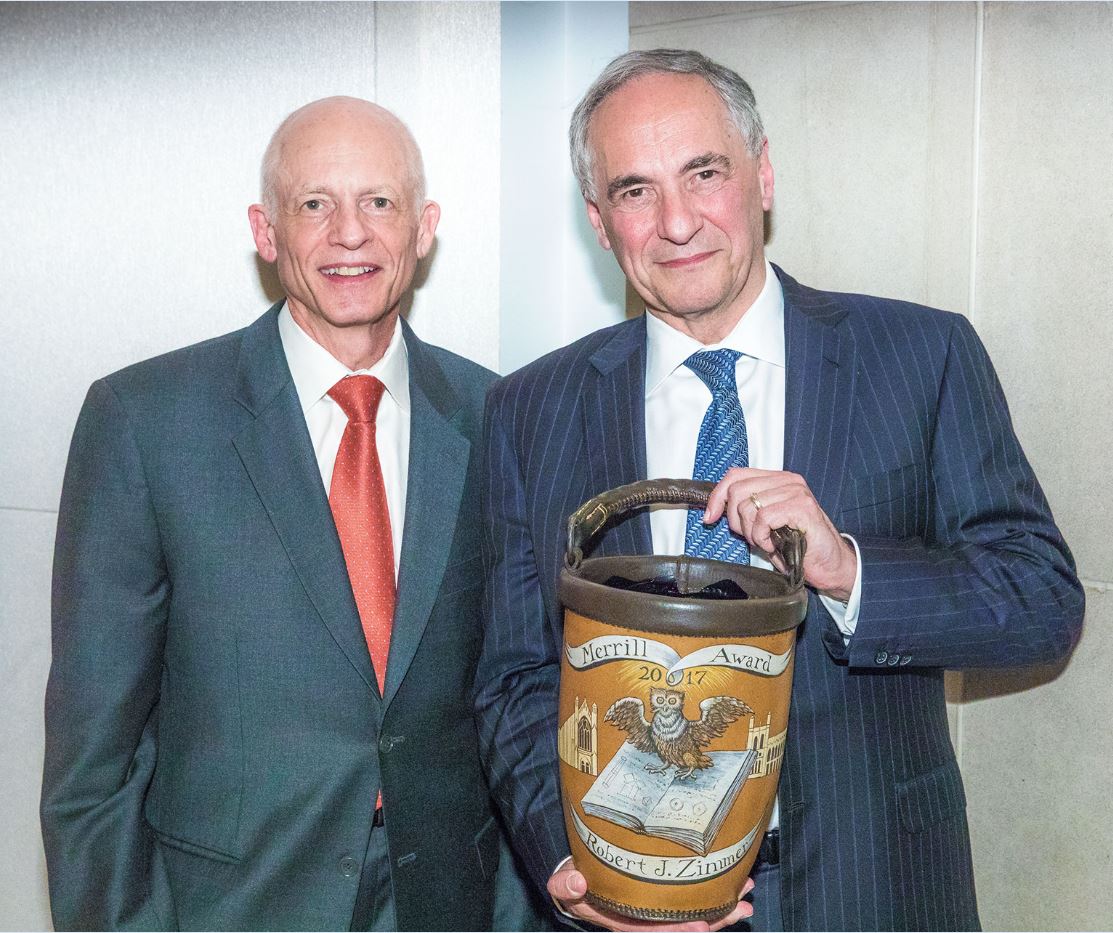
This ATHENA gathering brought together visionary leaders, donors, and a new generation of students eager to build on the examples celebrated throughout the day. It shared a vision for higher education that can unite and energize at a time when many are losing confidence – lighting the way for a bright future in higher learning.
WHO WE ARE
Launched in 1995, we are the only organization that works with alumni, donors, trustees, and education leaders across the United States to support liberal arts education, uphold high academic standards, safeguard the free exchange of ideas on campus, and ensure that the next generation receives an intellectually rich, high-quality college education at an affordable price.
Discover MoreSTAY INFORMED
Sign up to receive updates on the most pressing issues facing our college campuses.
